.jpg?ext=.jpg)
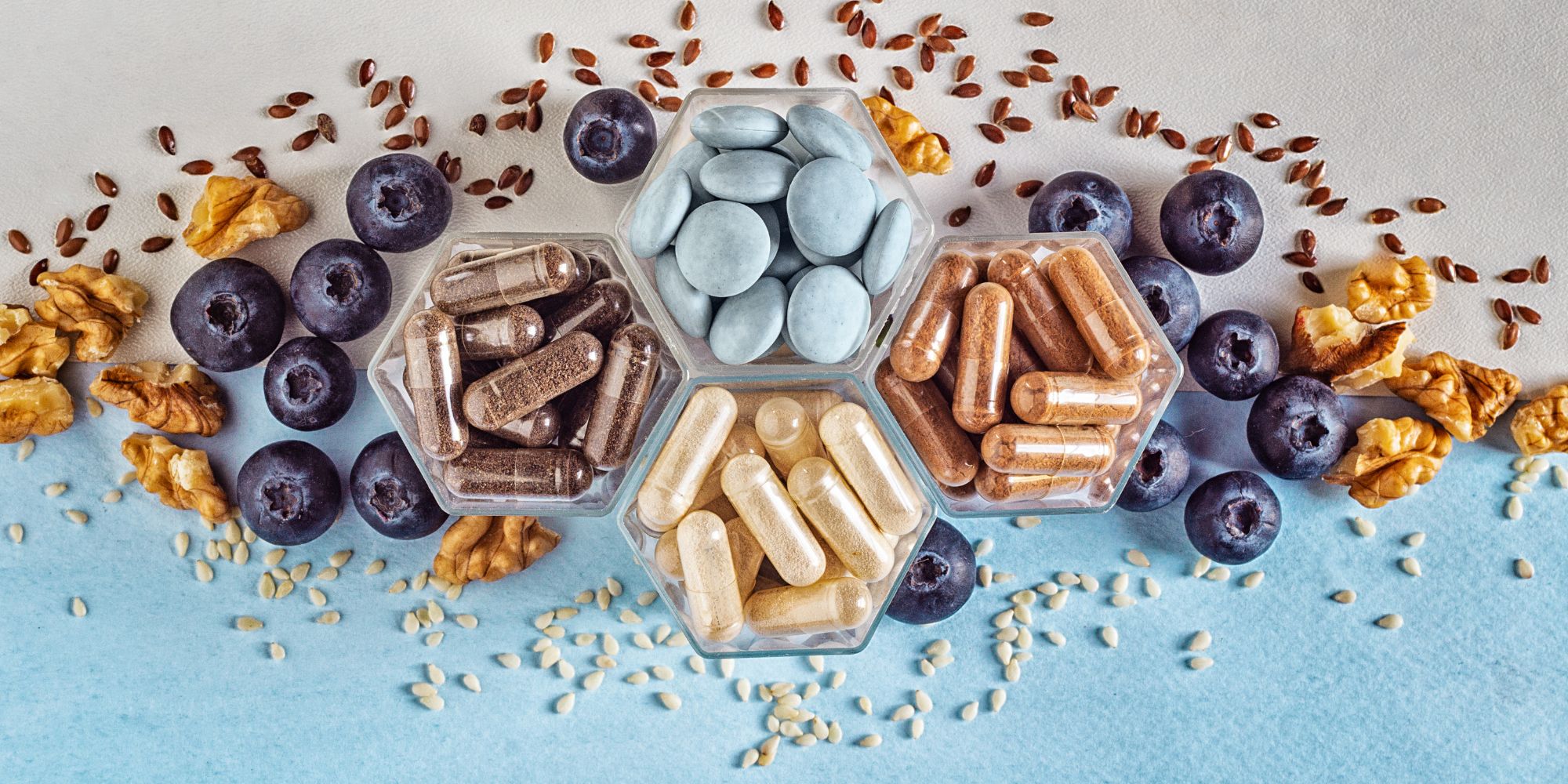
Nourishing Women's Health - Ten Essential Supplements for Women
While a balanced diet forms the foundation of a healthy lifestyle, certain supplements can provide additional support to meet the unique nutritional needs of women. From supporting bone health to enhancing reproductive well-being, these supplements are vital in optimizing women's overall health.
This blog will explore the top ten essential supplements women should consider incorporating into their wellness routine.
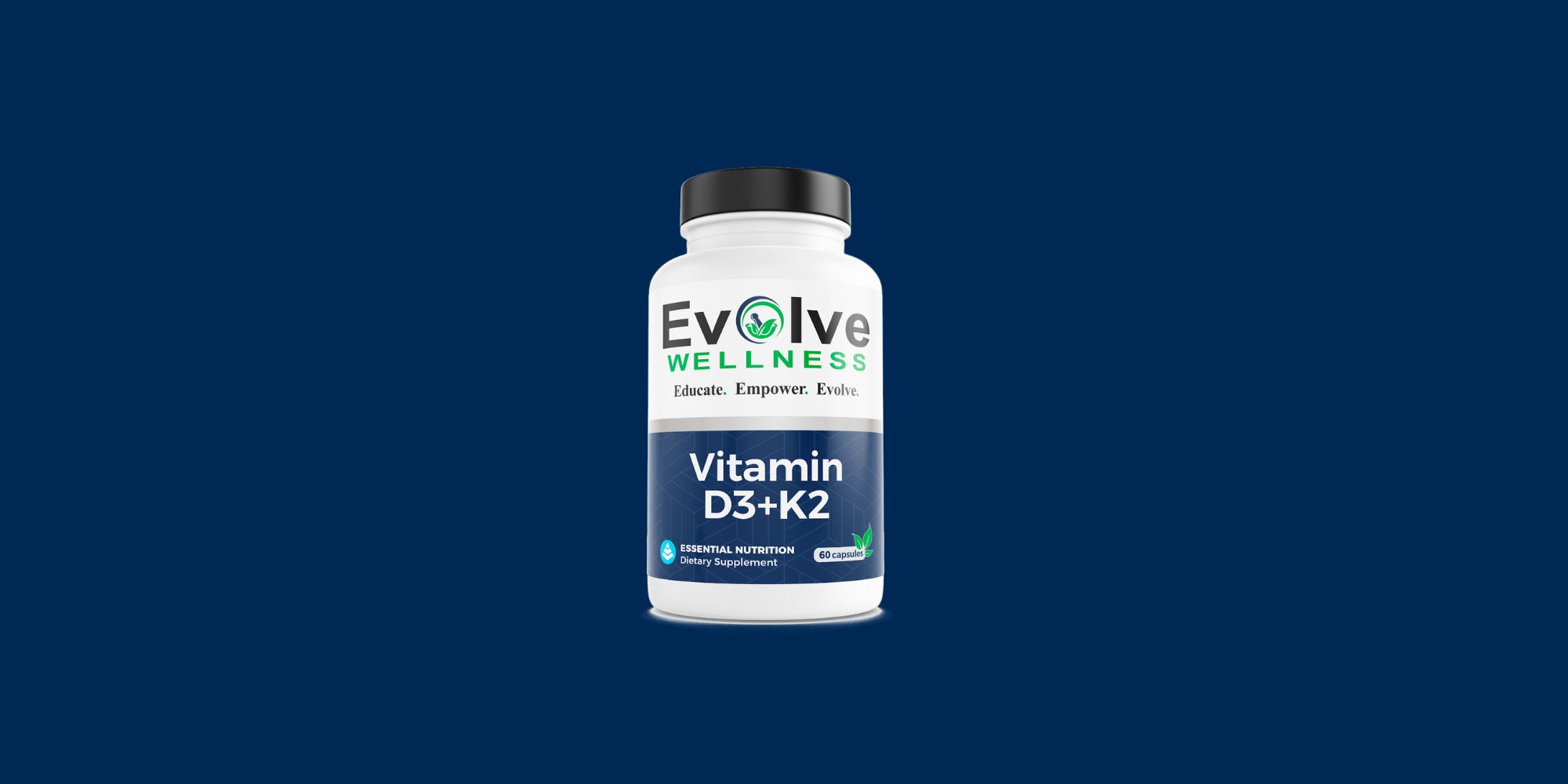
Calcium: Calcium is crucial for maintaining strong bones and preventing osteoporosis, a condition more common in women. Adequate calcium intake through dietary sources or supplements helps support bone density and reduce the risk of fractures. It is recommended for women to consume 1,000-1,200 mg of calcium per day, depending on age.
Vitamin D Plus K2: Working hand in hand with calcium, vitamin D aids in the body's absorption and utilization of calcium. It also contributes to immune function, mood regulation, and overall well-being. Since sunlight exposure may not always be sufficient, especially in specific regions or during winter, vitamin D supplementation is often recommended, particularly for those with limited sun exposure. It’s important to take Vitamin K2 with Vitamin D to make sure the Vitamin D is getting where it needs to be and not staying in your arteries.
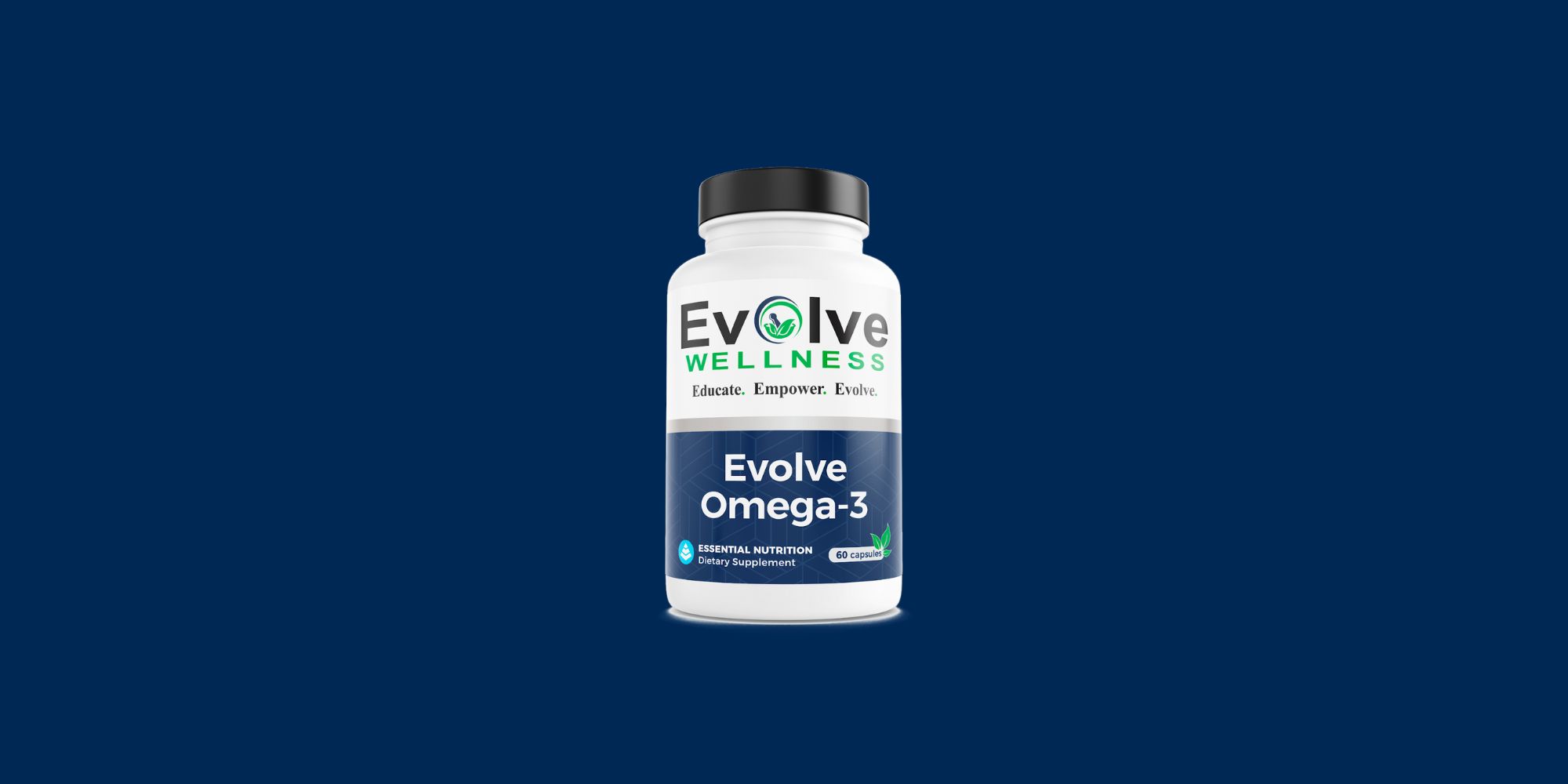
3. Iron: Iron plays a crucial role in transporting oxygen throughout the body and preventing iron deficiency anemia, a condition more prevalent among women. Supplementing with iron can help maintain healthy energy levels and support overall vitality. However, it is essential to consult with a healthcare professional to determine if iron supplementation is necessary, as excessive iron intake can be harmful.
4. Omega-3 Fatty Acids: Omega-3 fatty acids, such as EPA and DHA, benefit heart health, brain function, and reduce inflammation. They may also support hormonal balance and alleviate menstrual symptoms. Incorporating supplements like fish oil or algae-based omega-3s can provide these essential fats that may be lacking in the diet.
5. B Vitamins: B vitamins, including folate, B6, and B12, are vital for energy metabolism, nerve function, and the production of red blood cells. They also play a role in supporting mental health and managing stress. Since some women may have an increased need for certain B vitamins, such as during pregnancy or while taking hormonal contraceptives, supplementation can help bridge any nutritional gaps.

6. Magnesium: Magnesium involves numerous physiological processes, including muscle relaxation, sleep regulation, and mood stabilization. It may also alleviate premenstrual symptoms and support bone health. Considering magnesium supplementation, particularly for those with inadequate dietary intake or specific health concerns, can be beneficial.
7. Vitamin C: Vitamin C is an antioxidant that supports the immune system, collagen synthesis, and iron absorption. It may also contribute to healthy skin and reduce the risk of chronic diseases. While vitamin C can be obtained through fruits and vegetables, supplementation can be considered to ensure optimal levels, especially for those with limited dietary intake.
8. Probiotics: Probiotics are beneficial bacteria that promote gut health, digestion, and immune function. They can also help maintain vaginal health and prevent urinary tract infections. Incorporating a high-quality probiotic supplement with various strains can support the delicate balance of the microbiome.
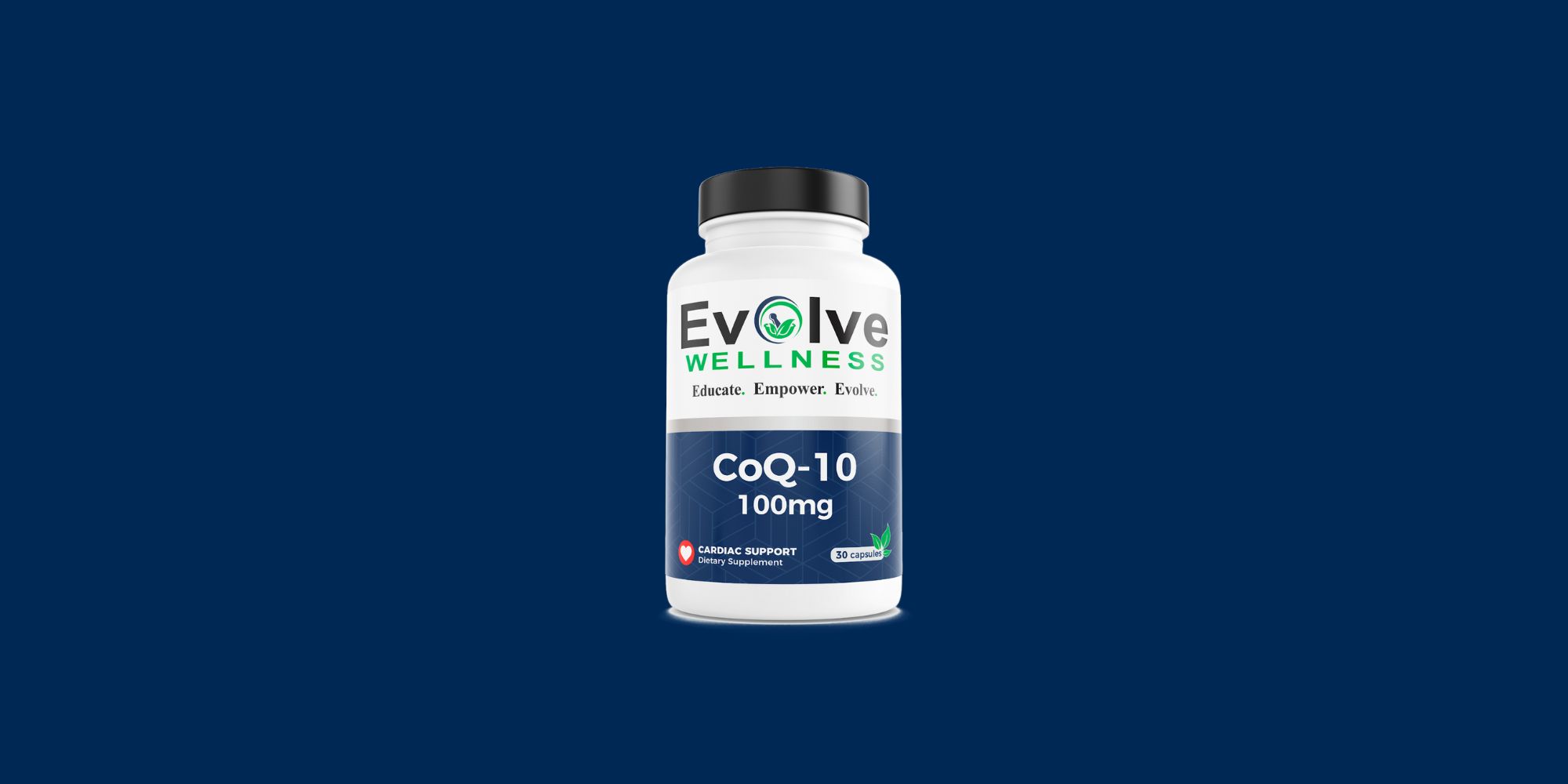
9. Coenzyme Q10 (CoQ10): CoQ10 is an antioxidant that plays a crucial role in cell energy production. It may support heart health, enhance fertility, and provide anti-aging benefits. As women age, the body's CoQ10 production decreases, making supplementation a potential consideration for overall well-being.
10. Evening Primrose Oil: Evening primrose oil, derived from the evening primrose plant, contains gamma-linolenic acid (GLA), an omega-6 fatty acid. It may help alleviate symptoms associated with hormonal imbalances, such as breast tenderness, PMS, and menopause. Consulting with a healthcare professional can help determine whether evening primrose oil suits individual needs.
Also, a quality multivitamin, like Wellara, is important to fill the gaps that diet alone doesn’t fill.
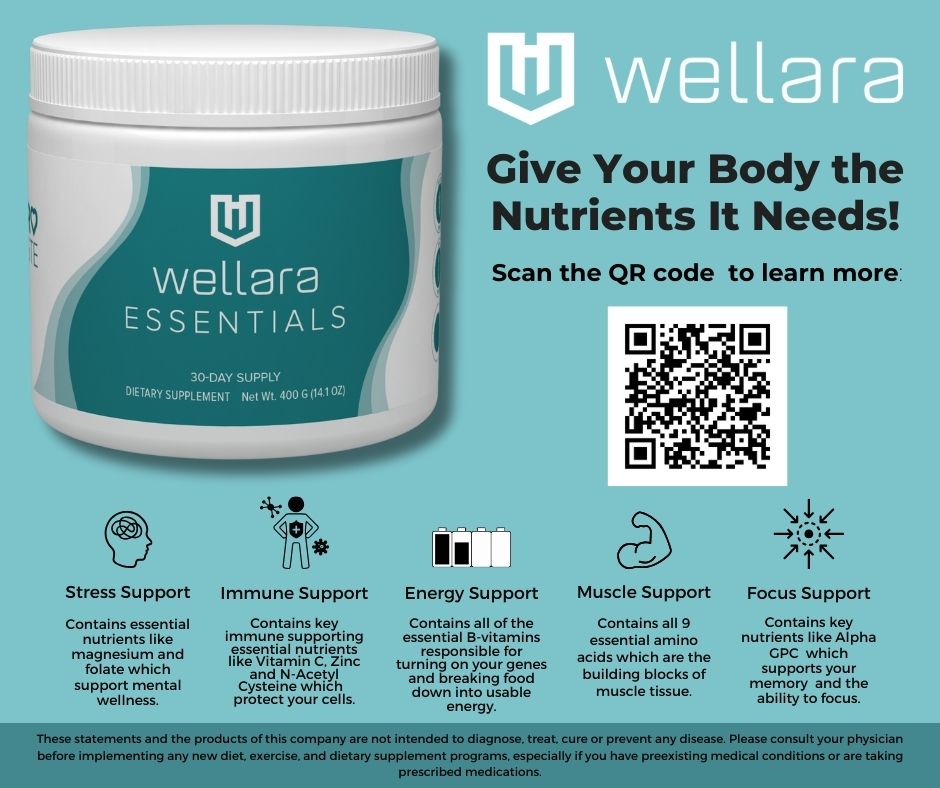
Supplements can be valuable additions to a woman's wellness routine, supporting specific health concerns and providing essential nutrients that may be lacking in the diet. However, it is important to remember that these supplements are not meant to replace a balanced diet but complement it. Prioritizing a healthy lifestyle, including regular exercise, quality sleep, stress management, and a nutrient-rich diet, remains key to overall well-being.
Before starting any supplement regimen, it is always advisable to consult with a healthcare professional to ensure individual needs are met and to address any potential interactions or contraindications.







Comments